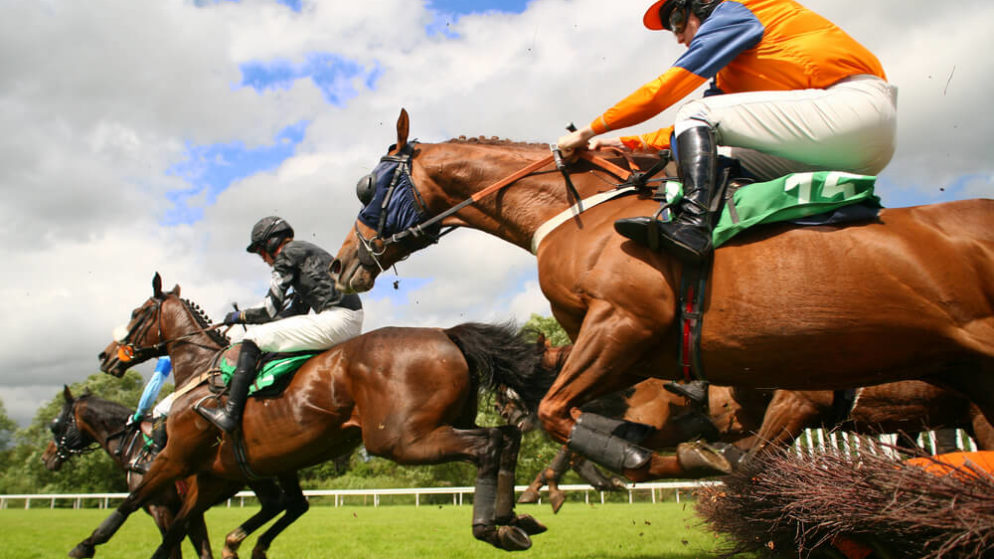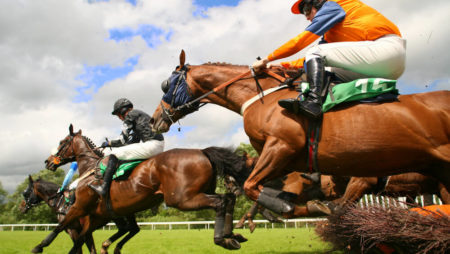

Fixed odds wagering for New Jersey’s racetracks could potentially boost declining gaming tax revenues. The New Jersey Racing Commission is expected to approve fixed-odds wagering at Monmouth Park racetrack. Many in the New Jersey gaming industry believe a positive decision will be made soon.
What we cover
Fixed Odds Wagering vs Pari-Mutuel Wagering
Sports bettors already know about fixed-odds wagering. College and pro basketball and football gambling use fixed odds wagering with point spreads. Likewise, hockey and baseball gambling use fixed odds with odds of winning the game. With a fixed odds wager, the bettor checks the betting line ahead of the event, places a bet, and the bet carries those odds for the winning payout.
On the other hand, horse racing uses pari-mutuel wagering. With pari-mutuel wagering, the odds are set by the race track. Bettors place their bets on a horse, knowing that the odds they enter at the window or online probably won’t be the final odds when the race starts.
A good example of this recently occurred at Monmouth’s most esteemed race; the $1,000,000 Haskell Invitational. Hall of Fame trainer Bob Baffert’s horse, Authentic, was listed in the morning as the 4:5 odds-on-favorite, but so many placed bets on Authentic that by race time, Authenthic’s odds shifted to 3:5. In horse racing, shifting odds are very common.
New Jersey Race Tracks are Betting on Fixed Odds Wagers
BetMakers Technology Group, an Australia-based company, and Dennis Drazin, owner, and operator of Monmouth Park, entered a 5-year agreement for BetMakers to run fixed odds wagering. The agreement was made in February, and the parties are betting on a positive ruling by New Jersey’s Racing Commission.
Monmouth Park is on track to become the first track in the United States to offer fixed-odds wagering on horse races.
Bill Pascrell III, a partner at Princeton Public Affairs Group and a trustee at GVC Foundation US, is a well-known expert on sports betting, online gaming and lottery. Pascrell was directly involved with Monmouth Park’s deal with BetMakers.
As for the New Jersey Racing Commission approving fixed odds wagering, Pascrell says it’s not a question of if, but when. “We are very close,” Pascrell said. “It’s just a matter of dotting the I’s and crossing the T’s.”
Pascrell has also played a very influential role in other significant efforts in recent years to bring sports betting and online gaming to the US. He believes that bringing fixed-odds wagers to the US gaming market will be game-changing. However, Pascrell thinks it’s hard to predict what approval could do to improve the state’s tax revenue.
Fixed Odds Wagering Could Boost New Jersey’s Tax Revenue
Fixed odds wagers have been offered in BetMakers’ home country of Australia for 10 years. The country of 24.6 million now bets $25 billion on horse racing every year. Fixed odds wagers account for 84% of that amount. In comparison, the United States has a population of more than 330 million who bet around $11 billion annually on horse racing, none of which is fixed odds wagering.
When New Jersey governor Phil Murphy forced casinos and racetrack to close, in response to COVID-19, plus the limited number of sports events to bet on, crashed the state’s gaming revenue.
Based upon numbers posted by the New Jersey Division of Gaming Enforcement, the total gaming revenue for June 2020 was $97.6 million, compared to $283.8 million in June 2019. That’s a 65.6% year-over-year decrease. On top of that, May experienced a 65.4% year-over-year decline.
While most casinos, as well as Monmouth Park, reopened in July, overall gaming tax revenue is still down.
New Jersey collects an 8.5% tax on both casino and racetrack gross sports betting revenue as well as a 13% tax on casino and racetrack online sports betting gross revenue. The state also levies a 1.25% Racetrack Economic Development Tax.








